
At the border post—little more than a gas station and a KFC—he sits in a line for two to three days, in temperatures reaching 104F, waiting for his documents to be processed.
That’s only the start of a journey Nsukuzimbi makes maybe twice a month. Driving 550 miles farther north gets him to the Chirundu border post on the Zambian frontier. There, starting at a bridge across the Zambezi River, trucks snake back miles into the bush. “There’s no water, there’s no toilets, there are lions,” says the 40-year-old Zimbabwean. He leans out of the Freightliner’s cab over the hot asphalt, wearing a white T-shirt and a weary expression. “It’s terrible.”
By the time he gets his load of tiny plastic beads—the kind used in many manufacturing processes—to a factory on the outskirts of Zambia’s capital, Lusaka, he’s been on the road for as many as 10 days to traverse just 1,000 miles. Nsukuzimbi’s trials are typical of truck drivers across Africa, where border bureaucracy, corrupt officials seeking bribes, and a myriad of regulations that vary from country to country have stymied attempts to boost intra-African trade.
The continent’s leaders say they’re acting to change all that. Fifty-three of its 54 nations have signed up to join the African Continental Free Trade Area; only Eritrea, which rivals North Korea in its isolation from the outside world, hasn’t. The African Union-led agreement is designed to establish the world’s biggest free-trade zone by area, encompassing a combined economy of $2.5 trillion and a market of 1.2 billion people. Agreed in May 2019, the pact is meant to take effect in July and be fully operational by 2030. “The AfCFTA,” South African President Cyril Ramaphosa said in his Oct. 7 weekly letter to the nation, “will be a game-changer, both for South Africa and the rest of the continent.”
هذه القصة مأخوذة من طبعة February - March 2020 من Bloomberg Markets.
ابدأ النسخة التجريبية المجانية من Magzter GOLD لمدة 7 أيام للوصول إلى آلاف القصص المتميزة المنسقة وأكثر من 9,000 مجلة وصحيفة.
بالفعل مشترك ? تسجيل الدخول
هذه القصة مأخوذة من طبعة February - March 2020 من Bloomberg Markets.
ابدأ النسخة التجريبية المجانية من Magzter GOLD لمدة 7 أيام للوصول إلى آلاف القصص المتميزة المنسقة وأكثر من 9,000 مجلة وصحيفة.
بالفعل مشترك? تسجيل الدخول
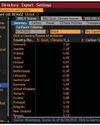
See Which Countries Are Falling Behind On Climate Change
Under the Paris Agreement, 190 countries and the European Union pledged to take steps to hold the global temperature rise to less than 2C (3.6F) from preindustrial levels—and preferably 1.5C.
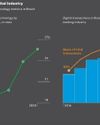
Billionaires Vie for the Future of Brazilian Finance
An escalating battle between two billionaires is upending the financial community in São Paulo, Latin America’s wealthiest city.
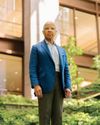
Ford Foundation's Darren Walker: ‘We Have to Get Uncomfortable'
DARREN WALKER, 62, disrupted his Wall Street life more than 25 years ago when he left what is now UBS Group AG to volunteer at a school and eventually pursue a career in community development and philanthropy. Since 2013 he’s been at the pinnacle of the philanthropic world as president of the Ford Foundation, created by the family of automaker Henry Ford during the Great Depression to advance human welfare.

Fueling the Ener Transition
I MAY BE BIASED, but some of the most important research and data on the Bloomberg terminal lies in one of its lesser-known functions: {BNEF }

Dig Into Analysts' Estimates for Disruptive Companies
THE PANDEMIC ERA generated a whole wave of disruptive companies as it accelerated the introduction of new products and services in areas including artificial intelligence, digitization, electronic payments, online meeting platforms, and virtual currencies.
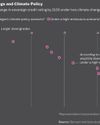
Climate Risks Come for Sovereign Credit
FOR YEARS climate scientists have warned about the ferocious wildfires and hurricanes that are now overwhelming many communities. Today alarms are ringing about a related financial danger: risks lurking within government bonds, the biggest part of the global debt market.

Responsible-Investing Pioneer Lydenberg Says ESG Needs An Upgrade
STEVE LYDENBERG’S passion for social change was inspired by anti-Vietnam War demonstrations, consumer boycotts, and the movement to divest from apartheid South Africa. But he didn’t take to the streets. Instead, Lydenberg turned to the world of finance to help catalyze societal change.

Engine No. 1's Grancio: ‘People Will Appreciate an Economic Argument'
ENGINE NO. 1 sent shock waves across corporate America in May when the fledgling investment firm won a boardroom battle with Exxon Mobil Corp., securing three seats on the oil and gas giant’s board after purchasing only about $40 million of its stock.
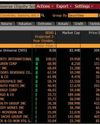
Find Out Which Companies May Ramp Up Payouts After Covid
AS THE PANDEMIC DISRUPTED business last year, many companies cut or suspended dividends. Which will boost their payouts when economies pick up again?
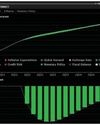
Get Into the Minds of Central Bankers as They Navigate Shocks
HAVE YOU EVER WONDERED how central bankers forecast the impact of shocks on the economy?